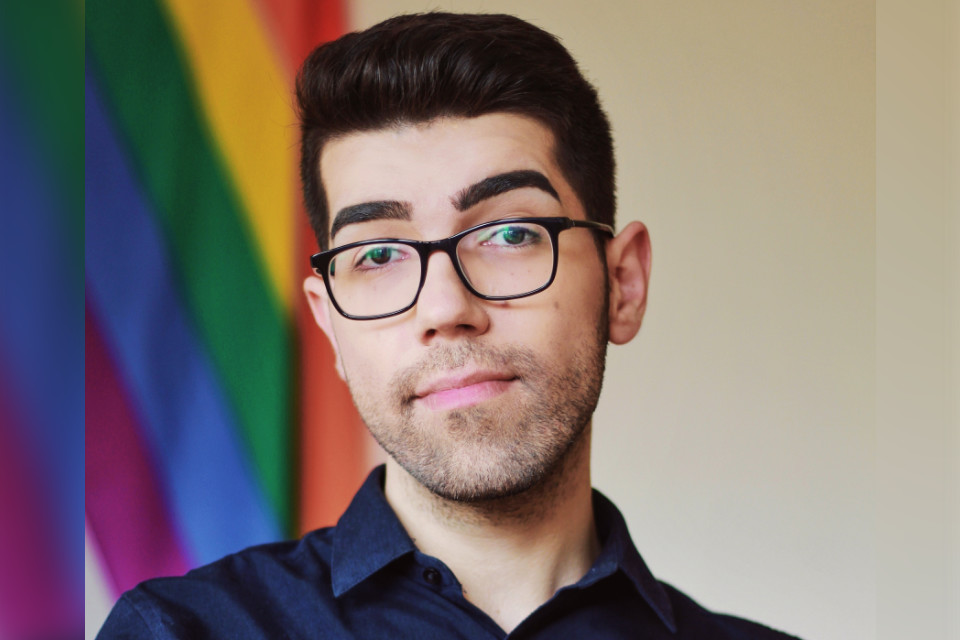In the words of Stefan Petrovski: “We need to raise awareness and prevent violence against trans men and women”
Stefan Petrovski, 23, is a LGBTIQ+ activist and project coordinator at Subversive Front, an association for sexual and gender minorities in North Macedonia. He is also a peer-to-peer educator for comprehensive sexuality education. His field of study and research is focused on gender, sexuality, and ethnicity in literature and linguistics. Currently, Stefan Petrovski is acting as a youth ambassador within the EU-UN Women regional programme on ending violence against women in the Western Balkans and Turkey “Implementing Norms, Changing Minds,” and he spoke to UN Women about the effects of the COVID-19 pandemic on queer people.Date:

![]()
For most young women and men, the COVID-19 could be their first crisis. The pandemic and restrictions on movement have negatively affected the economy, making employment difficult for young people who haven't yet established stable careers and leaving them solely dependent on the support of their families – if they are fortunate enough to have such support.
But the pandemic hasn’t affected all young people equally. For many queer people, especially queer young people who don't live with their families due to their coming out, it has been especially difficult to keep a roof over their heads and maintain a basic income. The pandemic has created two mutually reinforcing situations: homelessness and zero income, and domestic abuse from partners and/or family members. This means that most queer youth haven’t had proper protection during the pandemic and are at higher risk of infection, as a result of not having a safe and stable living situation as well as having to take the essential jobs offered at the moment (delivery, cleaning, etc.). For sex workers, especially trans sex workers, those issues contribute to intersectional discrimination and violence.
Queer people of all ages, as well as more privileged non-queer identifying people, need to come together to support those who are currently most affected by the pandemic.
Also, during these times, we need to raise awareness and prevent violence against women, highlighting the issues of all women, especially trans men and women. Most of them require routine check-ups and medicine to support their transition, and this transition cannot and should not be allowed to be put on pause. A lot of effort needs to be placed in digital marketing and targeting women and queer people to ensure that they have access to current information on protection and response to violence.
I am currently focusing most of my efforts from home on consulting and offering support to large groups of queer youth through online communication and community building activities as a way to offer comfort and support and share current challenges. Working in this field, I mostly focus on raising awareness on mental health and wellbeing, as a main contributor to empowerment, and on response and prevention to future situations of violence.
This is why my message to youth in these challenging times would be: ‘Reach out to anyone you trust, and don't be afraid to show signs of distress and trouble.’ We're all going through this together, and negative feelings are valid and human. The strongest are those who ask for help.”